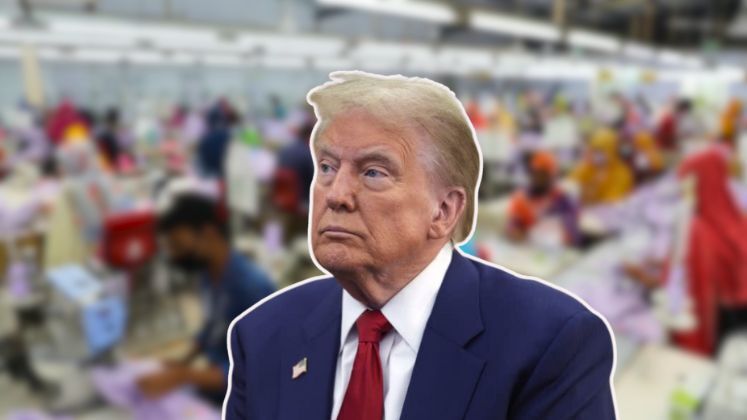Bangladesh’s readymade garment (RMG) industry is preparing for major disruptions following the United States’ announcement of a 37 per cent reciprocal tariff on Bangladeshi goods, a decision that industry leaders have termed a “devastating blow.” As a result, the total duty on RMG cotton-blend products will now increase to 54 per cent (37 per cent + 17 per cent), raising serious concerns about the country’s competitiveness in the US market, which represents a US $ 10 billion opportunity for Bangladesh.
Shovon Islam, Managing Director of Sparrow Group, highlighted that Bangladesh is among those nations facing the highest tariffs, now nearly on par with China’s rates for cotton products. With India and other competitors also experiencing tariff increases, Bangladesh’s new tariff rate exceeds India’s, potentially making it less attractive to buyers.
The tariff announcement came during a White House event where President Donald Trump outlined reciprocal measures in response to tariffs imposed on US goods by other countries. Trump emphasised that the new duties aim to address the trade deficit, which has become a focal point of his administration’s trade policy.
Industry leaders have noted a shift in buyer preferences, with requests for production moving to countries like Jordan, Egypt, and Kenya, where tariff rates are significantly lower. For instance, cotton products from Jordan are subject to only a 20 per cent duty, reinforcing its status as a more appealing sourcing destination compared to Bangladesh.
The immediate consequences of the tariff hike include potential shipment disruptions and delays in payments, echoing challenges faced during the COVID-19 pandemic. Md M Mohiuddin Chowdhury, a director at Clifton Fashion Ltd and a member of the BGMEA administrative committee, suggested that diplomatic engagement could pave the way for duty-free trade with the US, which would be transformative for the industry.
As Bangladesh navigates these challenges, industry leaders recommend a two-pronged strategy: offering zero-duty access for US agricultural products and increasing imports from the US to help balance the trade deficit. This approach may alleviate some trade tensions and encourage direct sourcing from the US rather than alternative markets.
Concerns are mounting over the implications of these tariffs, particularly as Bangladesh prepares for its transition from Least Developed Country (LDC) status. Shams Mahmud, managing director of Shasha Denim Ltd, emphasized that the new tariffs complicate this transition, raising questions about the country’s trade policies and competitive position.
With the RMG sector facing unprecedented challenges, industry leaders are calling for immediate government action to protect Bangladesh’s vital trade relationships and ensure the sustainability of its garment industry.







